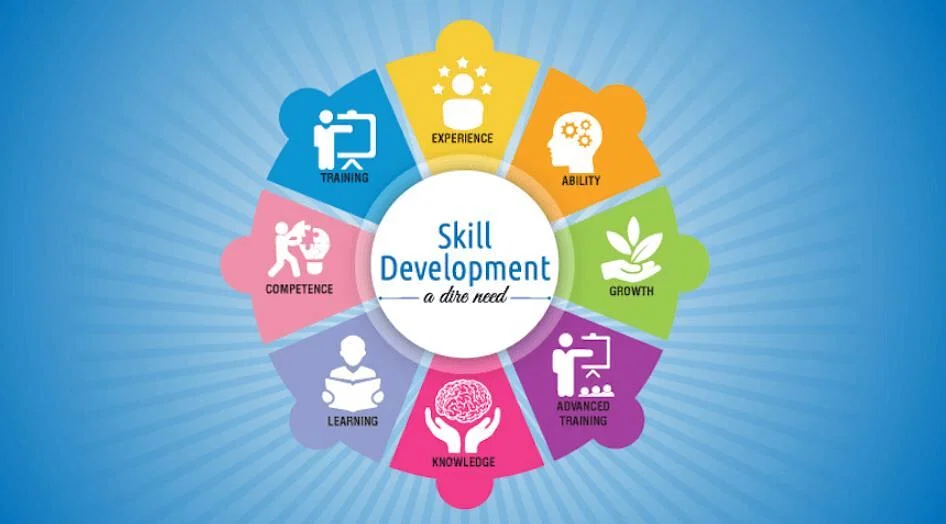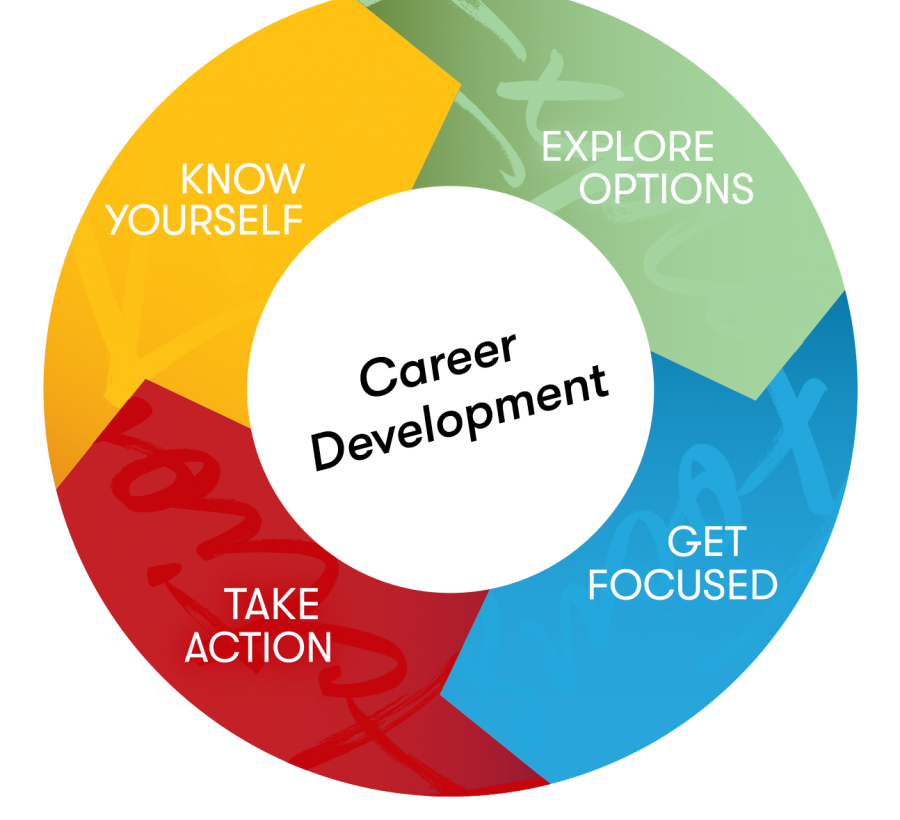1. Introduction
In today’s competitive job market, career guidance and support are more crucial than ever. And one of the most effective forms of career guidance is mentorship. Mentorship plays a vital role in unlocking success and accelerating career growth.
A mentor, with their knowledge, experience, and guidance, can provide valuable insights and advice to help individuals navigate their professional journeys. Whether you’re a recent graduate, a mid-career professional, or aspiring to climb the corporate ladder, mentorship can be the key to unlocking your full potential and achieving your career goals. In this blog, we will explore the crucial role of mentorship in career growth and how it can propel you towards success.

2. The power of mentorship in career growth
Mentorship is a powerful tool that can greatly impact your career growth. It provides you with access to a wealth of knowledge and experience in your field, helping you navigate challenges and make informed decisions. One of the major benefits of having a mentor is the ability to gain insights and advice from someone who has already walked the path you are on. They can offer guidance on career choices, provide constructive feedback, and help you identify areas of improvement. Moreover, mentors can also open doors to new opportunities by introducing you to their network and advocating for your potential. In short, mentorship has the potential to propel your career forward, allowing you to unlock new heights of success.
3. Why mentorship is crucial for professional development
Mentorship plays a critical role in professional development by offering valuable guidance and support. As professionals, we often encounter obstacles and uncertainties along our career paths. Having a mentor can provide us with the insights and wisdom needed to navigate these challenges successfully.
One of the key reasons why mentorship is crucial for professional development is the opportunity to learn from someone who has already achieved the goals we aspire to reach. Mentors possess vast experience and knowledge in their respective fields, allowing them to provide valuable advice and suggestions tailored to our specific career paths.
Furthermore, mentors can offer constructive feedback, helping us identify areas of improvement and growth. They provide a safe space for us to discuss our ideas and ambitions, offering valuable insights and perspectives that we might not have considered. This feedback is invaluable for our personal and professional growth.
Another aspect that makes mentorship crucial for our professional development is the access it grants us to new opportunities. Through their extensive network and industry connections, mentors can open doors for us that might otherwise remain closed. They can introduce us to influential individuals in our field, recommend us for new projects or job opportunities, and even advocate for our potential. These opportunities, facilitated by our mentors, can accelerate our career growth and help us unlock new levels of success.
In conclusion, mentorship is crucial for professional development due to the guidance, support, and access to opportunities it provides. By having a mentor, we can gain valuable insights, receive constructive feedback, and build a network of connections that can propel our career forward. So, whether you are a seasoned professional or just starting out, consider the extraordinary benefits of mentorship in unlocking your path to success.

4. How to find a mentor who aligns with your goals
Now that we understand the importance of mentorship in our professional development, the next step is finding a mentor who aligns with our goals. This is a crucial aspect of mentorship as the right mentor can greatly influence our career trajectory.
Firstly, take the time to identify your specific career goals and areas where you would like guidance and support. Knowing what you want to achieve will help you find a mentor who has expertise in those areas. Research professionals in your field who have achieved success in areas similar to your aspirations.
Next, reach out to your professional network and ask for recommendations. Colleagues, supervisors, or alumni from your university can provide valuable insights and possibly connect you with potential mentors. Attend industry conferences or networking events to expand your network and meet professionals who share your interests.
When approaching potential mentors, be clear about your goals and why you believe their guidance would be beneficial for your growth. Show genuine interest in their work and establish a connection based on shared values and aspirations.
Finally, be persistent. Not every professional you reach out to will have the time or availability to be a mentor. Keep reaching out to multiple professionals until you find the right match. Remember, mentorship is a two-way process, so ensure that you can also offer something valuable to your potential mentor.

5. Establishing a successful mentor-mentee relationship
Establishing a successful mentor-mentee relationship is crucial to maximizing the benefits of mentorship. While finding the right mentor is important, building a solid foundation for the relationship is equally essential.
First and foremost, establish clear expectations and goals for the mentoring relationship. Discuss what you hope to learn, achieve, and gain from the mentorship. This will ensure that both you and your mentor are aligned in terms of the desired outcomes.
Open communication is key. Regularly schedule meetings or calls to check-in, discuss progress, and seek guidance. Be open and transparent about your challenges, questions, and areas where you need support. A strong mentor-mentee relationship is built on trust and honesty.
Take initiative and be proactive in your own growth. Come prepared to each meeting with specific questions, ideas, or progress updates. Take ownership of your development and actively seek feedback and guidance from your mentor.
Lastly, show appreciation and gratitude for your mentor’s time and guidance. Express your gratitude and acknowledge the impact they have had on your professional growth. A simple thank you can go a long way in strengthening the mentor-mentee bond.
In the next section, we will delve into the benefits of mentorship and how it can accelerate your career growth. Stay tuned and continue your journey towards unlocking success through mentorship.
6. The benefits of being a mentor yourself
In addition to reaping the benefits of being a mentee, there is immense value in becoming a mentor yourself. The role of a mentor goes beyond just sharing knowledge and expertise. It also offers opportunities for personal and professional growth.
One of the primary benefits of being a mentor is the chance to give back to the community and help shape the future of your industry. By sharing your experiences, insights, and skills, you can make a positive impact on someone’s career trajectory and contribute to the development of your field.
Being a mentor can also enhance your leadership and communication skills. As you guide your mentee, you’ll develop your ability to effectively communicate ideas, provide constructive feedback, and inspire others. These skills are not only valuable in a mentoring relationship but also in your professional interactions and as you progress in your own career.
Moreover, being a mentor allows you to expand your network and connections. As you support and guide your mentee, you’ll have the opportunity to connect with other professionals in your industry, including your mentee’s colleagues or fellow mentees. These connections can lead to new opportunities, collaborations, and a broader perspective on your field.
In the upcoming section, we will explore strategies for becoming an effective mentor and nurturing a successful mentor-mentee relationship. Stay tuned to discover how you can unlock the potential of mentorship in your own career.

7. Conclusion: Embracing the transformative impact of mentorship in unlocking career success
In this blog series, we have delved into the crucial role of mentorship in career growth. We explored the benefits of being a mentee and how it can lead to personal and professional development. We also discussed how becoming a mentor offers the opportunity to give back to the community, enhance leadership and communication skills, and expand one’s network.
By embracing the transformative impact of mentorship, individuals can unlock their full potential and accelerate their career success. Mentorship provides a supportive environment where mentees can gain valuable insights, guidance, and encouragement. Mentors, on the other hand, can make a significant impact on someone’s career trajectory and contribute to the advancement of their industry.
In the concluding section of this series, we will further explore the strategies for becoming an effective mentor and nurturing a successful mentor-mentee relationship. These insights will equip you with the tools and knowledge to make the most out of mentorship and drive your career forward.



